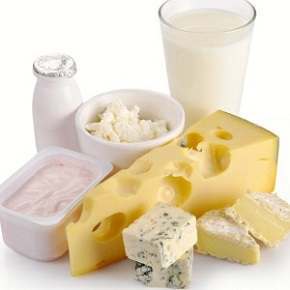Is It Really Possible To Lose Weight Through CLA?
Obesity is one of the quickly growing problems in America. According to a recent survey, more than one-third (about 34.9%) of the American population is obese. While there may be a number of reasons for obesity, one of the major causes is unhealthy food choices. The negligence with regards to the food you eat and how it can affect your body, is the primary reason for your weight problems.
If you are one of those people who want to lose weight than you might have heard about Conjugated Linoleic Acid or CLA. Supermarket aisles are lined with products each claiming to be the ONLY solution to your weight problem. CLA is also one such product that can help with weight management. Many commercial industries back their claim with scientific evidence that CLA is a fat burning fatty acid. Though it is true, it is only half the truth.
Before you fall for any such claims, let us give you a little insight regarding CLA and its fat mechanism.
What You Should Know About CLA
 CLA is an isomer of linoleic acid family. Scientific research performed on animals showcased that CLA increased the metabolic rate and the rate of cellular oxidation. This, in turn, induces the fat burning process. CLA is not just a fat burner; in fact, it also helps in maintaining cholesterol levels and boosts the immune system. CLA inhibits inflammatory reactions and can provide a shield against cancer and heart diseases.
CLA is an isomer of linoleic acid family. Scientific research performed on animals showcased that CLA increased the metabolic rate and the rate of cellular oxidation. This, in turn, induces the fat burning process. CLA is not just a fat burner; in fact, it also helps in maintaining cholesterol levels and boosts the immune system. CLA inhibits inflammatory reactions and can provide a shield against cancer and heart diseases.
CLA is naturally obtained from dairy products and meat of ruminant animals. Here is the catch; all the above-mentioned benefits were obtained from CLA derived from natural sources. The same research found out that commercial CLA supplements replenished these benefits only in very small amounts.
The CLA that is obtained for commercial use is derived from safflower or sunflower. However, the highest sources of CLA is the meat of grass-fed animals and their milk. The bacteria, rumen, present in the gut of ruminant animals is mainly responsible for the synthesis of CLA.
 Scientists emphasize to incorporate natural sources of CLA in your diet and avoid supplements. The primary reason being that commercial sources lack the essential vitamins and minerals such as magnesium, omega-3, and vaccenic acid. These vitamins and minerals enhance the capabilities of CLA, help in its absorption, and also generate vitamin E and carotene as by-products.
Scientists emphasize to incorporate natural sources of CLA in your diet and avoid supplements. The primary reason being that commercial sources lack the essential vitamins and minerals such as magnesium, omega-3, and vaccenic acid. These vitamins and minerals enhance the capabilities of CLA, help in its absorption, and also generate vitamin E and carotene as by-products.
Moreover, taking CLA in the form of dietary pills can cause some side effects. People taking capsules containing CLA may experience nausea, vomiting, and diarrhea. Continued use can even cause regular onset of headaches and blackouts.
It was found that CLA can lower the blood pressure and decrease the levels of HDL (good) cholesterol. The ‘sports chew’ form of CLA available in the market is also ineffective. The amount of CLA present in these forms is even lower than those present in pills. An alternative way of obtaining CLA is to eat fig bars and gumdrops, which will give you the same effect but with few calories.
Do you want to find an effective CLA treatment? Check out our top rated CLA products











